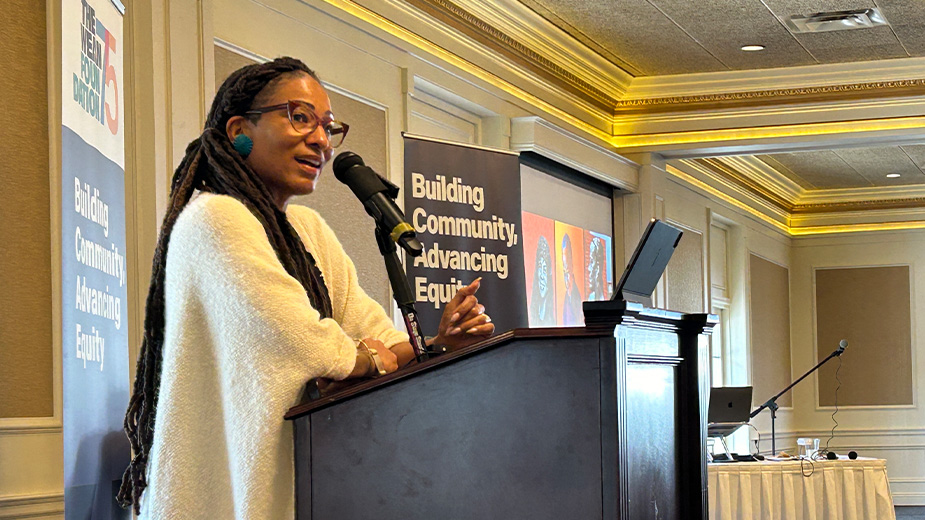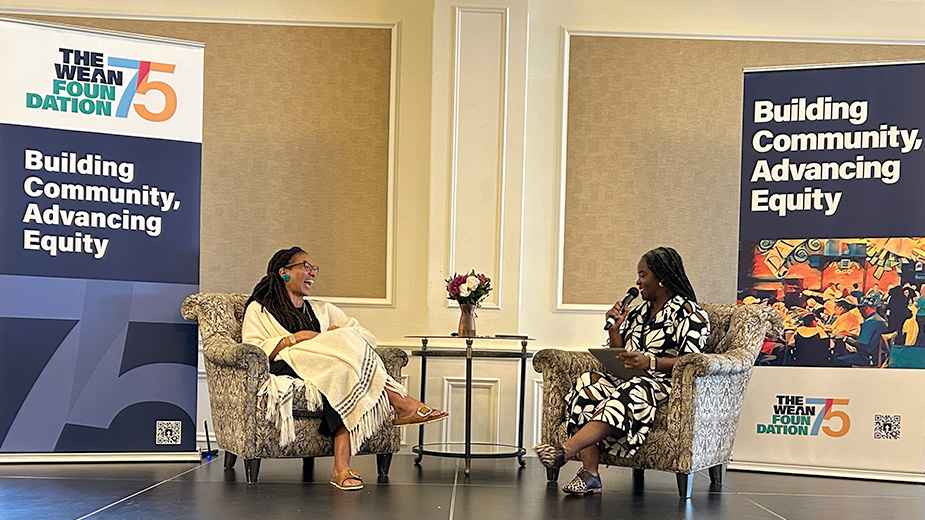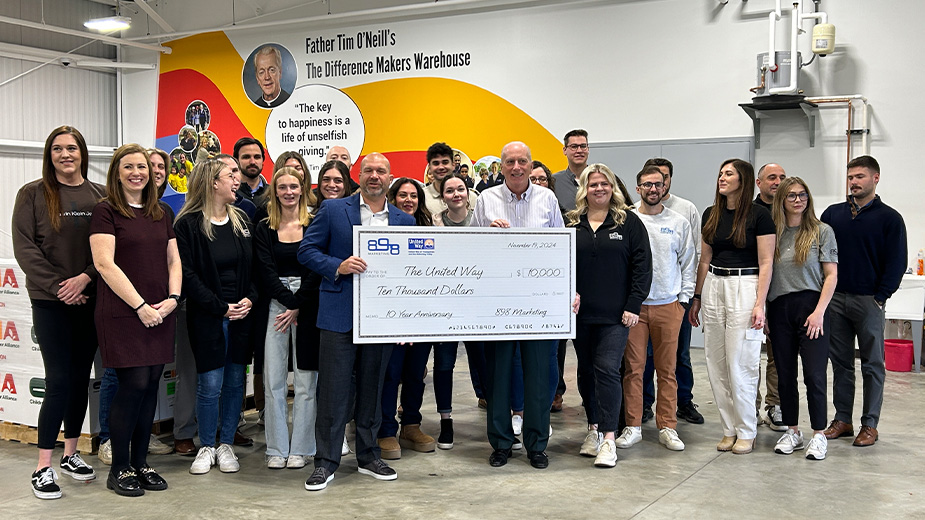Wean Foundation Marks 75 Years with Summit
WARREN, Ohio – The Raymond John Wean Foundation started in 1949 as a family foundation and evolved into a progressive, private foundation, its president said.
The foundation is rooted in community and all about advancing change in the Mahoning Valley, President Jennifer Roller said Tuesday during its 75th anniversary summit at the Grand Resort.
“I’m happy to be here as a Black woman in this community – born in this community, quite honestly – who is striving for a future where one’s race identity does not influence how one fares in society,” Roller said.
Equitable compensation was a focus of the summer.
“It’s an issue that we see as the most critical affecting the nonprofit sector and others,” Roller said.
When Roller thinks about equitable compensation, she thinks about the social worker at the community center in the housing project where she grew up. That woman mentored Roller and many others, but Roller said there’s no doubt that the woman wasn’t paid fairly or treated equitably. There are many other examples, she said.
“And over the years, I’ve thought more than once, someone should do something about this,” Roller said. “And now I’m confident that that someone is us.”
A lack of equitable compensation affects not just the individual but also society, she said. But in working together, Roller said she hopes to raise awareness and make lasting change.
It’s about more than just pay and benefits, Roller said. It includes child care, transportation, debt reduction and flexibility.
Both Youngstown Mayor Jamael Tito Brown and Eddie Colbert, Warren safety-service director, on behalf of Mayor Doug Franklin, presented proclamations honoring the foundation’s 75th anniversary to Roller and Gordon Wean, board president.
The foundation was founded by Wean’s grandfather. Raymond John Wean was the first in his family to attend college, and he did it without a high school diploma, Gordon Wean said.
He went to Carnegie Tech, which is now Carnegie Mellon University, arguing that his work in foundries qualified him for admission. After a year, he received a scholarship. The elder Wean started a business in 1929, cold rolling mills for the steel industry.
“Twenty years later, he started the Wean Foundation with funds from his success because he wanted to have a vehicle to give charitably to the community,” Wean said.
The foundation continued as a typical family foundation, giving money to schools and hospitals with which the family had a connection, he said. It did not accept uninvited grant proposals.
“Fortunately, our effort to become a more approachable and more effective grant maker began in the late 90s and continues today,” said Wean, who got involved in the foundation about 25 years ago.
He’s the only Wean family member on the foundation’s board.
“The most recent 25 of our 75 years saw us make an intentional shift from being an arm of family giving to becoming a community asset,” he said.
The board also expanded.

The summit’s keynote speaker, Ruha Benjamin, is the Alexander Stewart 1886 Professor of African American studies at Princeton University. She’s also an author, and she talked about some of the issues raised in her books.
“So what I’m calling viral justice orients us differently toward small-scale, often localized, actions,” she said. “It invites to witness how an idea or an action that sprouts in one place can be adopted, adapted and diffused elsewhere.”
But it also counters the assumption that scaling up should always be the goal, Benjamin said. “Viral Justice” is also the title of one of Benjamin’s books. She listed examples of medical students fed up with the apathy of their institutions who formed White Coats for Black Lives.
They staged die-ins to honor victims of police violence and demonstrate a commitment to dismantling the systems that led to their deaths. That raised the question to medical institutions if medical professionals are responsible for combating racism. Those students say yes.
Seattle Solidarity is another example of viral justice. That group focused on small changes in that city’s budget.
It’s a broad group of nearly 200 organizations that have banded together. Issues upon which they’re working are housing for all, safe and affordable public transportation, disability justice, the Green New Deal and digital equity.
“Like the other examples, they’re connecting what we don’t need and what we do need,” Benjamin said.
Seattle spends 26 times more on policing than on climate, she said.
“The Solidarity budget then invests in climate resilience through spending that helps transition low-income households from oil heat to clean energy,” Benjamin explained. “That, in turn, lowers climate pollution and reduces residents’ utility bills.”
Those residents host virtual community education meetings, rally at City Hall and attend city council meetings.
“They remind us that a budget is more than a budget,” she said. “It’s a moral document that tells us who and what we value.”
It also brings to light the fact that all of our struggles are interconnected.
“Viral justice is an admission that I am, that we are, exhausted, discouraged, grieving – sometimes even too exhausted to grieve,” Benjamin said. “It’s a declaration that even the most hopeful and resolute among us worry that our efforts are futile and we need encouragement to see another day.”
It’s forward looking, too. It encourages amplification and spreading of seemingly small efforts, she said.
“It’s a rallying cry that scraps this bogus idea that you’re just one person,” Benjamin said. “As just one person, let’s band together with all the other just people who are equally hungry for change.”
It’s not charity work or work to be done on behalf of others, she said.
“Falling from a burning building, I might hit the ground first, but you won’t be far behind,” Benjamin said. “My well-being is intimately bound up with yours, so we don’t need allies – we need everyone to smell the smoke.”
Benjamin is also the founding director of the Ida B. Wells Just Data Lab. Her work investigates the social dimensions of science, medicine and technology with a focus on the relationship between innovation and equity, health and justice and knowledge and power, according to the foundation.
Pictured at top: Ruha Benjamin, left, the Alexander Stewart Professor of African American studies at Princeton University, and Evelyn Burnett, co-founder and CEO of the Third Space Action Lab in Cleveland.
Copyright 2024 The Business Journal, Youngstown, Ohio.



